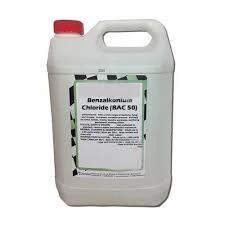water scale inhibitor
Water Scale Inhibitors Essential Solutions for Industrial and Domestic Applications
Water, one of the most vital resources on Earth, often contains various minerals and impurities. Among these, calcium and magnesium are the primary culprits behind scale formation in water systems. Scale – a hard, chalky deposit – can significantly impede water flow and lead to inefficiencies in heating equipment, cooling towers, and other industrial processes. To combat this persistent issue, water scale inhibitors have become crucial tools in maintaining operational efficiency and prolonging the lifespan of equipment.
Understanding Water Scale Formation
Scale formation occurs when water with high mineral content undergoes temperature changes, evaporation, or pressure fluctuations. As water loses its ability to hold dissolved minerals, these substances precipitate out and bond to surfaces, forming scales. Commonly found in boilers, heat exchangers, pipes, and faucets, scale not only reduces the effective diameter of pipes but also acts as an insulator, increasing the energy required for heating and cooling processes. Consequently, scale leads to costly repairs, increased energy consumption, and reduced efficiency.
The Role of Water Scale Inhibitors
Water scale inhibitors are chemical substances designed to prevent the formation of scale by modifying the properties of minerals present in the water. These inhibitors work in several ways
1. Threshold Inhibition This mechanism involves the addition of inhibitors that keep calcium and magnesium dissolved in water, preventing them from precipitating out and forming scale.
2. Crystal Modification Some inhibitors alter the growth patterns of scale-forming crystals, making them less adhesive and easier to flush away.
3. Dispersants These compounds help to keep already-formed scale particles suspended in water, preventing them from settling and accumulating on surfaces.
The selection of an appropriate water scale inhibitor is paramount, as it must be compatible with the specific water chemistry and the equipment in question
. Various types of inhibitors are available, including phosphonates, polyacrylates, and organic acids, each with unique properties and applications.water scale inhibitor

Applications of Water Scale Inhibitors
Water scale inhibitors are widely used in numerous industries, including
- Power Generation In coal, natural gas, and nuclear power plants, scale can greatly reduce efficiency. Inhibitors are essential in boiler water treatment to maintain thermal efficiency and prevent operational failures.
- Food and Beverage Processing The food industry requires high standards of cleanliness and hygiene, where scale formation can harbor bacteria. Water scale inhibitors help maintain hygiene and product quality by reducing scale buildup in processing equipment.
- HVAC Systems In heating, ventilation, and air conditioning systems, scale can cause blockages and overheating. Inhibitors protect against these issues, enhancing the performance of chillers and boilers.
- Residential Use In domestic settings, water scale inhibitors are used in water softeners and point-of-use devices to improve water quality, protect appliances, and prevent limescale buildup in faucets and fixtures.
Environmental Considerations
While water scale inhibitors are effective, it is important to consider their environmental impact. Many traditional inhibitors can contribute to pollution if not managed properly. Therefore, the industry is increasingly focusing on developing biodegradable and less harmful alternatives that provide effective scale inhibition without posing risks to ecosystems.
Conclusion
Water scale inhibitors are indispensable for maintaining the efficiency and reliability of water systems across various applications. As industries continue to face challenges related to scale formation, the development of advanced inhibitors will remain a priority. The move towards eco-friendly alternatives also highlights the need for sustainable practices in water treatment. Understanding the importance of water scale inhibitors not only serves to enhance operational efficiency but also plays a critical role in conserving one of our planet's most precious resources – water. By employing effective scale management practices, industries can achieve significant cost savings and contribute to environmental sustainability, ensuring a better future for all.
-
Water Treatment with Flocculant Water TreatmentNewsJun.12,2025
-
Polymaleic AnhydrideNewsJun.12,2025
-
Polyaspartic AcidNewsJun.12,2025
-
Enhance Industrial Processes with IsothiazolinonesNewsJun.12,2025
-
Enhance Industrial Processes with PBTCA SolutionsNewsJun.12,2025
-
Dodecyldimethylbenzylammonium Chloride SolutionsNewsJun.12,2025





